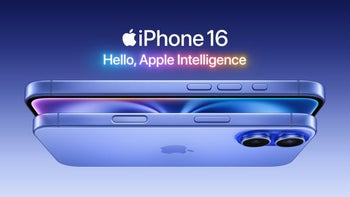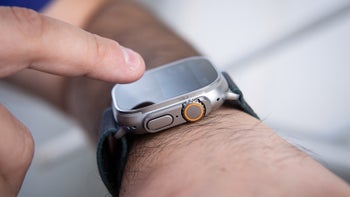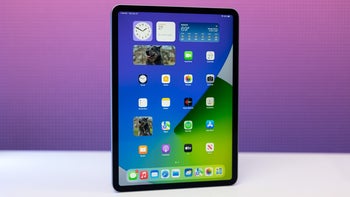T-Mobile 4G Mobile Hotspot Review

Introduction:
T-Mobile customers surely have something to rejoice about now that a lifelong dream is being fulfilled, but with most new ventures, there’s always that set of early adopters who seemingly rush to grasp new technology. Although it can be regarded as being somewhat of a late gesture, T-Mobile’s decision to finally bring along a Mi-Fi device to its lineup soundly complements its offerings. Not only does the T-Mobile 4G Mobile Hotspot bring data sharing through the airwaves with up to 5 Wi-Fi enabled devices, it does it with the aid of their speedy HSPA+ network – but will it actually execute accordingly and live up to the tasks at hand?
Included with the packaging are the terms & conditions, start guide, battery, charger, and microUSB cable.
Design:
Impressively, the ZTE manufactured T-Mobile 4G Mobile Hotspot looks considerably different from the usual set of Mi-Fi devices out there – which is nice in keeping it distinctive from the pack. Closely looking like a compact candybar phone, it tastefully combines a polished piano black front and soft touch rear with a bright green trim. Thanks to its plastic construction, it’s considerably lightweight, while still retaining a compact figure.
Looking to the left side of it, there’s a small plastic flap that comes off easily and hides away the port for an external antenna.
Meanwhile, the dedicated power and WPS buttons jut out slightly from the sides and offer a satisfying response when pressed. Additionally, we also find a microSD card slot as well which allows the T-Mobile 4G Mobile Hotspot to act as a card reader when it’s connected to a computer via its microUSB port on the bottom edge. Unfortunately, you can’t use the device to make it act as a tethered modem, but rather, it’s simply read as a removable storage device when connected.
Finally, yanking off the soft touch rear cover provides access to its 1,500 mAh battery and SIM card slot.
T-Mobile customers surely have something to rejoice about now that a lifelong dream is being fulfilled, but with most new ventures, there’s always that set of early adopters who seemingly rush to grasp new technology. Although it can be regarded as being somewhat of a late gesture, T-Mobile’s decision to finally bring along a Mi-Fi device to its lineup soundly complements its offerings. Not only does the T-Mobile 4G Mobile Hotspot bring data sharing through the airwaves with up to 5 Wi-Fi enabled devices, it does it with the aid of their speedy HSPA+ network – but will it actually execute accordingly and live up to the tasks at hand?
Design:
Impressively, the ZTE manufactured T-Mobile 4G Mobile Hotspot looks considerably different from the usual set of Mi-Fi devices out there – which is nice in keeping it distinctive from the pack. Closely looking like a compact candybar phone, it tastefully combines a polished piano black front and soft touch rear with a bright green trim. Thanks to its plastic construction, it’s considerably lightweight, while still retaining a compact figure.
Continuing to complement its unique looks, we find a tiny sized OLED display that stands out amongst the polished surface that provides pertinent information like signal strength, battery indicator, text message notifications, connectivity status, and the amount of devices connected to it. Thankfully, it’s reasonably sized and quite visible to read out even under direct sunlight.
Looking to the left side of it, there’s a small plastic flap that comes off easily and hides away the port for an external antenna.
Meanwhile, the dedicated power and WPS buttons jut out slightly from the sides and offer a satisfying response when pressed. Additionally, we also find a microSD card slot as well which allows the T-Mobile 4G Mobile Hotspot to act as a card reader when it’s connected to a computer via its microUSB port on the bottom edge. Unfortunately, you can’t use the device to make it act as a tethered modem, but rather, it’s simply read as a removable storage device when connected.
Finally, yanking off the soft touch rear cover provides access to its 1,500 mAh battery and SIM card slot.
Performance:
After getting things prepared, the T-Mobile 4G Mobile Hotspot is instantly able to connect to the 4G HSPA+ network by simply pressing the power button, which is stated as being able to obtain theoretical speeds of 21Mbps. Using our HP ultraportable laptop and various other Wi-Fi enabled devices, the T-Mobile 4G Mobile Hotspot is adept at keeping things connected to it without wavering in connection amongst the devices.
Testing out its speed prowess, we loaded up Ookala’s Speedtest.net web site to gather the kinds of speeds we’re able to get with it. During peak hours, we manage to get download speeds around 3.04 to 3.41Mbps, with average upload speeds of 1.27Mbps. Later on in the day, we tested out again, but this time around, we were undeniably impressed to get download speeds of 6.1Mbps. In terms of ping, it generally hovers around 113 to 136ms – which isn’t too bad at all with its response.
In real life world usage, such as uploading and downloading files to our FTP server, we’re once again greeted with speeds that are vastly improved versus what we normally see with 3G enabled devices. Specifically, we see speeds of over 350Kbps while attempting to download an 81MB file. Conversely, we’re able to pull out upload speeds of 120Kbps to our server. All in all, we’re satisfied with the results, considering they’re better than those of 3G devices, but it’s still lagging in terms of the results seen with Verizon’s LTE offerings.
Sadly though, battery life is one major concern seeing that it’s able to only dish out 4 continuous hours of juice before being completely dissipated. For a dedicated device like this, it means that you’ll need to bring along its microUSB charger for short trips to keep you working. Furthermore, we constantly find the annoying issue of it disconnecting from the network entirely after a long period of inactivity. The headaches continue because the only way to resolve the problem to get it connected back to the network, is to restart it entirely by powering it off or removing its battery.
Conclusion:
One of the focal driving points about the T-Mobile 4G Mobile Hotspot is the simple reason that it’s the carrier’s very first Mi-Fi device, and rightfully so, it’s able to arrive on the scene sporting a favorable unconventional design and decent speeds to appease most people. However, taking into account its $79.99 on-contract and $149.99 off-contract prices, it’s rather on the pricey side of things. Moreover, it doesn’t do justice as a Mi-Fi device seeing that it exhibits poor battery life and frustrating connection drops. In the end, it’s an admirable start, but we’d recommend picking up any of their 4G enabled USB modems if you want to save some cash in the near term.
T-Mobile 4G Mobile Hotspot Video Review:
After getting things prepared, the T-Mobile 4G Mobile Hotspot is instantly able to connect to the 4G HSPA+ network by simply pressing the power button, which is stated as being able to obtain theoretical speeds of 21Mbps. Using our HP ultraportable laptop and various other Wi-Fi enabled devices, the T-Mobile 4G Mobile Hotspot is adept at keeping things connected to it without wavering in connection amongst the devices.
Testing out its speed prowess, we loaded up Ookala’s Speedtest.net web site to gather the kinds of speeds we’re able to get with it. During peak hours, we manage to get download speeds around 3.04 to 3.41Mbps, with average upload speeds of 1.27Mbps. Later on in the day, we tested out again, but this time around, we were undeniably impressed to get download speeds of 6.1Mbps. In terms of ping, it generally hovers around 113 to 136ms – which isn’t too bad at all with its response.
In real life world usage, such as uploading and downloading files to our FTP server, we’re once again greeted with speeds that are vastly improved versus what we normally see with 3G enabled devices. Specifically, we see speeds of over 350Kbps while attempting to download an 81MB file. Conversely, we’re able to pull out upload speeds of 120Kbps to our server. All in all, we’re satisfied with the results, considering they’re better than those of 3G devices, but it’s still lagging in terms of the results seen with Verizon’s LTE offerings.
Conclusion:
One of the focal driving points about the T-Mobile 4G Mobile Hotspot is the simple reason that it’s the carrier’s very first Mi-Fi device, and rightfully so, it’s able to arrive on the scene sporting a favorable unconventional design and decent speeds to appease most people. However, taking into account its $79.99 on-contract and $149.99 off-contract prices, it’s rather on the pricey side of things. Moreover, it doesn’t do justice as a Mi-Fi device seeing that it exhibits poor battery life and frustrating connection drops. In the end, it’s an admirable start, but we’d recommend picking up any of their 4G enabled USB modems if you want to save some cash in the near term.









Things that are NOT allowed: